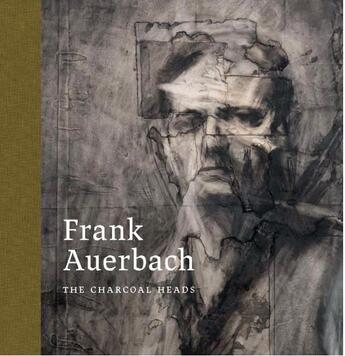-
Date de parution : 01/03/2024
-
Editeur :
Paul Holberton
-
EAN : 9781913645595
-
Série :
(-)
-
Support :
Papier
Résumé:
Accompanying an exhibition at the Courtauld Gallery, London, Frank Auerbach:
The Charcoal Heads presents a remarkable series of hauntingly beautiful largescale drawings by the artist. The catalogue includes a new piece of writing on one of the drawings from critically acclaimed novelist Colm... Voir plus
Accompanying an exhibition at the Courtauld Gallery, London, Frank Auerbach:
The Charcoal Heads presents a remarkable series of hauntingly beautiful largescale drawings by the artist. The catalogue includes a new piece of writing on one of the drawings from critically acclaimed novelist Colm Tóibín.
This catalogue explores one of Frank Auerbach's most remarkable bodies of work - a series of large-scale portrait heads made in charcoal, produced during his early years as a young artist in postwar London. Auerbach (b. 1931) spent months on each drawing, working and reworking them during numerous sessions with his sitters.
This prolonged and vigorous process of creation is evident in the finished drawings, which are richly textured and layered. Auerbach would sometimes even break through the paper and patch it up before carrying on. His heads thus emerge from the darkness of the charcoal with burning vitality, born of an artistic as well as a physical struggle with the medium. The process of repeated creation and destruction, of which these images bear the visible scars, speaks profoundly of their times, as people rebuilt their lives after the ruination and upending of the war.
The exhibition will be the first time Auerbach's extraordinary drawings, made in the 1950s and early 1960s, have been brought together as a comprehensive group. They will be shown together with a selection of paintings he made of the same sitters; for the artist, painting and drawing have always been deeply entwined.
The accompanying catalogue - by Deputy Head of The Courtauld Gallery, Barnaby Wright, and with an essay by one of the greatest contemporary voices in the English language, Colm Tóibín - is the first publication to explore in depth this magnificent series. Tóibín spent several hours one afternoon in front of Auerbach's Self-Portrait (1958), which features on the front cover of the book, looking closely and taking notes.
His essay is an account of his experience and offers new insights into the work and the nature of self-portaiture.
Donner votre avis















